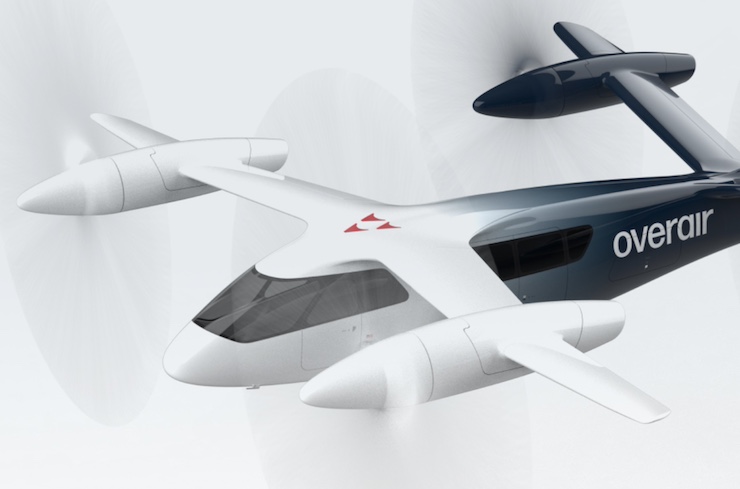
Joby, Archer, Volocopter and EHang are all racing ahead to become the first drone companies to commercialize their air taxis. But first to market doesn’t guarantee sales endurance. The first drone passenger vehicles will have to prove their airworthiness in a few trial roles – as elite passenger shuttles and troop transports, for example – and initial prototypes will be forced to evolve as the market expands and diversifies. Other drone taxis are still in development and their designers could benefit from watching the experience of these front-runners, adjusting their own offerings accordingly.
One such drone company is Overair, which seems especially well-positioned to capture the military market. The Santa Ana, CA-based company just completed assembly of its first full-scale “Butterfly” eVTOL prototype and will begin flight testing early next year. The company received $145 million in investment capital in 2022, which is accelerating its development. South Korean customers are standing by to purchase the first 20 Butterflies that make it off the assembly line, possibly in 2026. Overair has also signed two additional memoranda of understanding in Texas to help bring commercial EV operations to the northern region of that state.
The Butterfly features a number of unique flight technologies that set it apart from the competition – including Optimum Speed Tilt Rotors (OSTRs) and Individual Blade Control (IBC) which together greatly reduce the aircraft’s noise (to just 55 decibels). The aircraft also deploys an Optimum Propulsion System allowing for a flight speed of 200 mph over a distance of 100 miles on a single battery charge – dimensions that surpass those of other eVTOLs. Other unique features include the Butterfly’s carrying capacity – 5 passengers, plus 1 pilot (as needed) or space for 1,100 pounds of cargo (or some combination of the two). Joby, Archer and EHang feature more limited payloads.
That Overair has accomplished its state-of-the-art development in just three years is remarkable. But company co-founder Abe Karem, a veteran of the Israeli air force, is an old UAV pro steeped in military aviation development. In fact, he was instrumental in designing the Pentagon’s pioneering Predator and Hummingbird drone models over two decades ago. Butterfly grew out of Karem’s earlier aerospace manufacturing company, Karem Aircraft, which enjoys near-legendary military aircraft design and operational experience. If any single drone firm can claim to know what the Pentagon wants and needs, hands down it would be Overair.
“Assembling our first full-scale prototype vehicle marks the culmination of years of industry expertise, meticulous development planning, innovative engineering, and the hard work of the entire Overair team,” company co-founder Ben Tigner said last week. “This seamless transition from propulsion testing to a full-scale prototype underscores our dedication to redefining the eVTOL landscape with safer, quieter, and more reliable aircraft.”
In addition to servicing military customers, Overair has ambitions of integrating the Butterfly into urban mass transport systems. In addition to north Texas, Signer and Karem have set their sights on Los Angeles as a launching pad for their future commercial operations. The company recently joined with Urban Mobility Labs to promote its Urban Air Mobility Partnership – a public-private consortium that is educating Los Angeles stakeholders and residents about the need for eVTOL integration.
“Working together with UML on planning efforts grounded in community engagement, we’re on the path to providing reliable, affordable, equitable, and sustainable transportation options to the city of Los Angeles and surrounding areas,” Signer says.
|